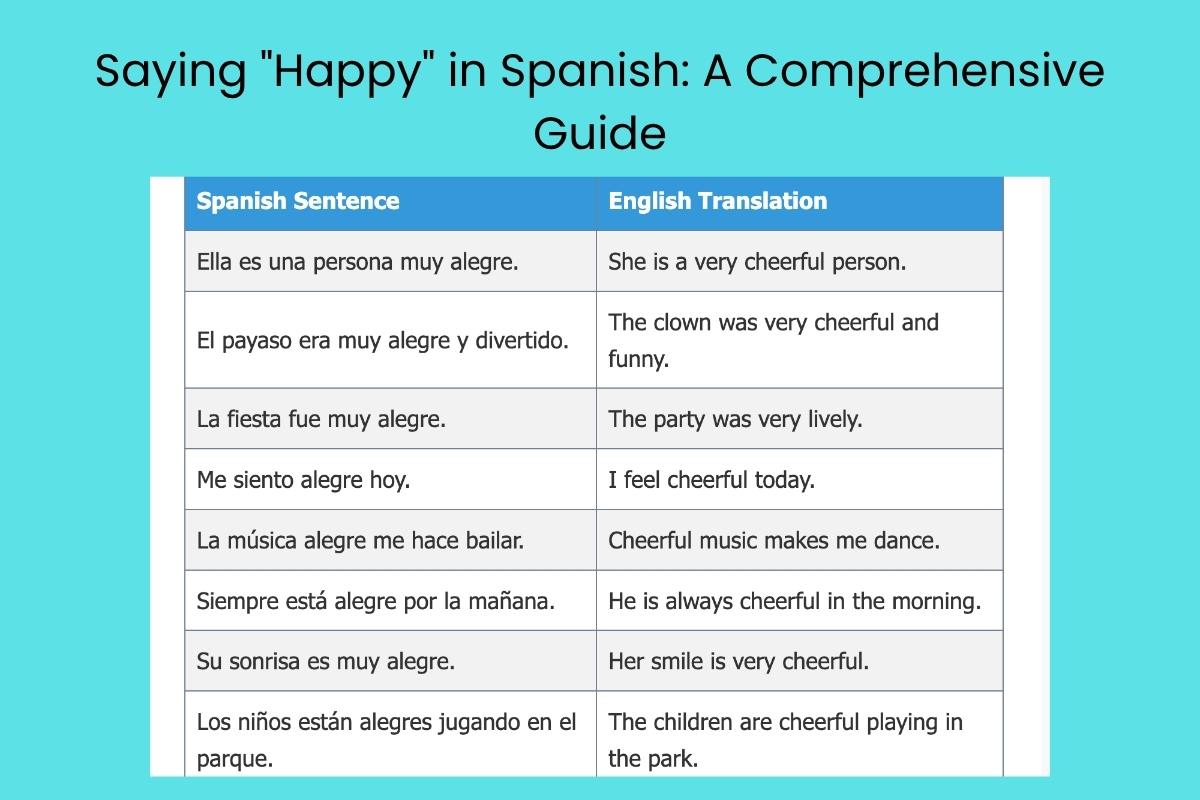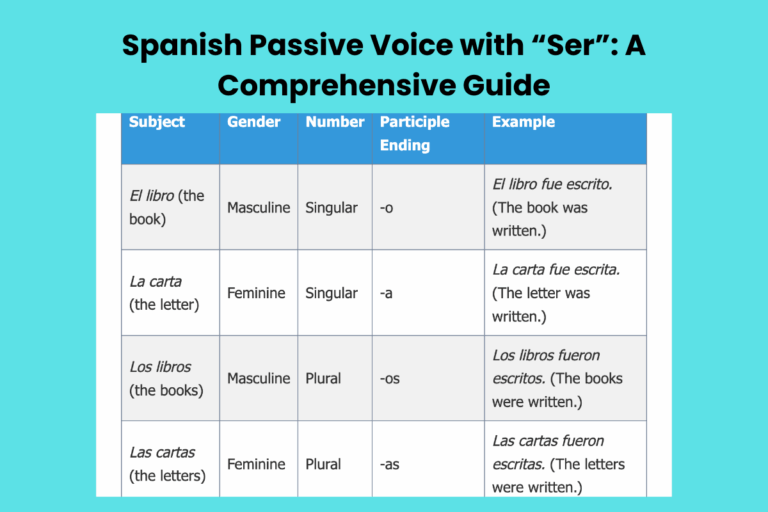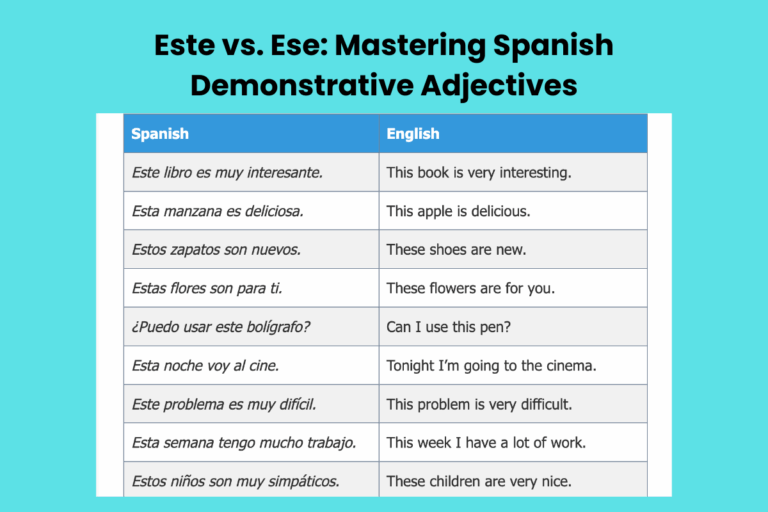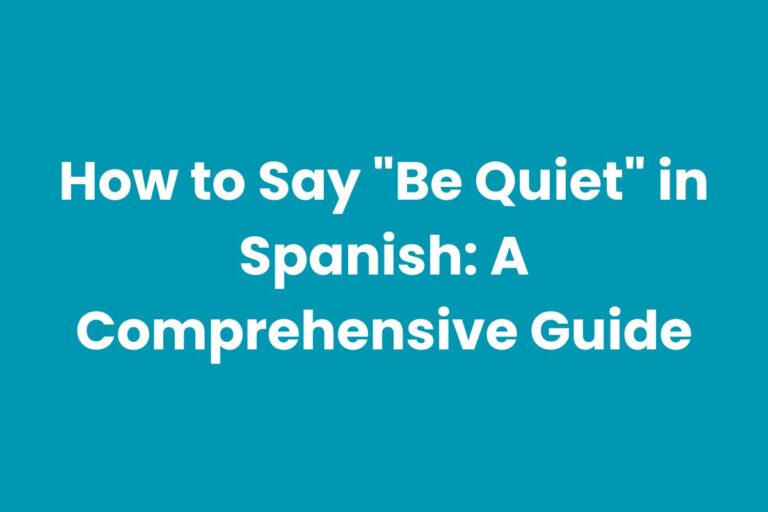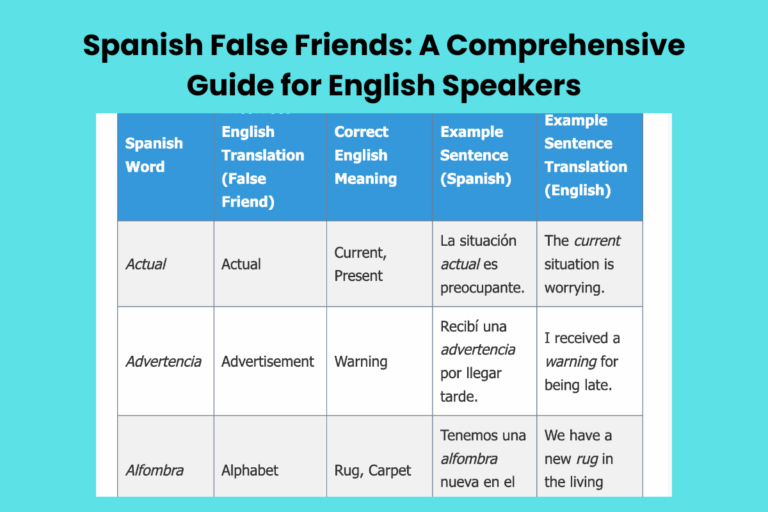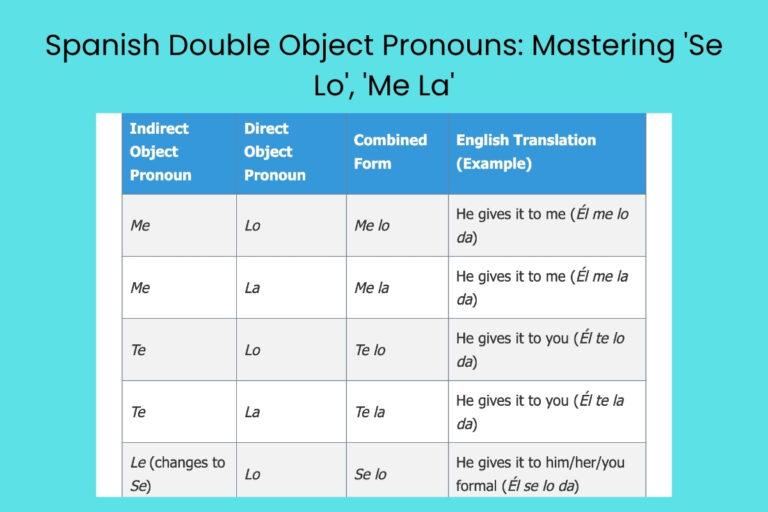Saying “Happy” in Spanish: A Comprehensive Guide
Expressing happiness is a universal human experience, and learning how to do so in another language opens up a world of connection and understanding. In Spanish, there isn’t just one way to say “happy.” The language offers a variety of words and expressions, each with its own nuance and context.
This article will guide you through the different ways to express happiness in Spanish, exploring the grammar, usage, and cultural considerations that will help you communicate your joy effectively. Whether you’re a beginner or an advanced learner, this guide will provide you with the tools you need to convey your emotions authentically and accurately.
This article is designed for anyone learning Spanish, from beginners taking their first steps to advanced students looking to refine their understanding of the language. It will be particularly helpful for those who want to express their emotions accurately and appropriately in different contexts.
Understanding the nuances of expressing happiness will not only improve your vocabulary but also enhance your ability to connect with native Spanish speakers on a deeper level.
Table of Contents
- Definition of “Happy” in Spanish
- Structural Breakdown of “Ser” and “Estar” with Happiness
- Types and Categories of Happiness Expressions
- Examples of Happiness Expressions
- Usage Rules for “Happy” in Spanish
- Common Mistakes When Expressing Happiness
- Practice Exercises
- Advanced Topics
- Frequently Asked Questions
- Conclusion
Definition of “Happy” in Spanish
In Spanish, the concept of “happy” is conveyed through several words, each carrying slightly different connotations. The most common translations include alegre, feliz, and contento/a. These adjectives describe a state of well-being, pleasure, or satisfaction. Additionally, words like dichoso/a and emocionado/a can also express forms of happiness, albeit with more specific nuances.
The choice of which word to use depends on the specific context and the degree of happiness you wish to express. For example, feliz often implies a deeper, more profound sense of happiness, while alegre might suggest a more fleeting or lighthearted joy. Contento/a is a general term for being pleased or satisfied. Understanding these subtle differences is crucial for accurate and effective communication.
These words function as adjectives in Spanish, meaning they modify nouns. They describe the state or condition of a person or thing. They are typically used with the verbs ser and estar, which both mean “to be,” but are used in different contexts. The correct verb choice is essential for conveying the intended meaning. The choice between ‘ser’ and ‘estar’ often determines whether the happiness is a permanent characteristic or a temporary state.
Structural Breakdown of “Ser” and “Estar” with Happiness
The verbs ser and estar are fundamental to expressing happiness in Spanish. Although both translate to “to be” in English, their usage differs significantly. Ser is generally used to describe permanent or inherent characteristics, while estar is used for temporary states or conditions. When describing happiness, the choice between these verbs depends on whether the happiness is considered a lasting trait or a transient emotion.
Here’s a breakdown of how ser and estar are conjugated in the present tense:
- Ser:
- Yo soy (I am)
- Tú eres (You are)
- Él/Ella/Usted es (He/She/You is/are)
- Nosotros/Nosotras somos (We are)
- Vosotros/Vosotras sois (You all are)
- Ellos/Ellas/Ustedes son (They/You all are)
- Estar:
- Yo estoy (I am)
- Tú estás (You are)
- Él/Ella/Usted está (He/She/You is/are)
- Nosotros/Nosotras estamos (We are)
- Vosotros/Vosotras estáis (You all are)
- Ellos/Ellas/Ustedes están (They/You all are)
The rule of thumb is that estar is used with emotions and temporary states. Therefore, you will almost always use estar when saying that someone is happy. Using ser to describe happiness is generally incorrect because happiness is usually viewed as a temporary state. However, there are rare exceptions where ser might be used to describe someone who is inherently cheerful or optimistic, but this is less common.
For example:
- Estoy feliz (I am happy) – This indicates a current state of happiness.
- Soy feliz (I am happy) – This implies that being happy is an inherent part of your personality (less common and potentially unnatural).
Types and Categories of Happiness Expressions
Spanish offers a rich vocabulary for expressing different shades of happiness. While “happy” can be a general term, understanding the nuances of each word will allow you to communicate more effectively and authentically.
Alegre
Alegre is often translated as “cheerful,” “merry,” or “lively.” It describes a lighthearted and often outward expression of happiness. It’s often associated with a temporary feeling or a general disposition towards cheerfulness. It’s a more superficial happiness than *feliz*.
Example: “La música alegre me levanta el ánimo.” (The cheerful music lifts my spirits.)
Feliz
Feliz is the most common and versatile translation of “happy.” It denotes a deeper, more profound sense of happiness, often associated with significant events or overall contentment in life. It can also be used for specific happy occasions, such as “Feliz cumpleaños” (Happy birthday).
Example: “Me siento feliz de estar aquí.” (I feel happy to be here.)
Contento/a
Contento/a means “content,” “satisfied,” or “pleased.” It expresses a feeling of satisfaction and contentment, often with a particular situation or outcome. It’s a milder form of happiness than *feliz* and suggests a sense of well-being and acceptance.
Example: “Estoy contento con mi trabajo.” (I am content with my job.) Note the gender agreement: “Ella está contenta con su trabajo.” (She is content with her job.)
Dichoso/a
Dichoso/a translates to “fortunate,” “blessed,” or “lucky.” It expresses happiness derived from good fortune or blessings. It’s a more formal and less frequently used term than the others, often conveying a sense of gratitude for one’s good fortune.
Example: “Soy dichoso de tener una familia tan maravillosa.” (I am fortunate to have such a wonderful family.)
Emocionado/a
Emocionado/a means “excited” or “thrilled.” While not a direct translation of “happy,” it expresses a feeling of excitement and anticipation, often associated with a positive event or experience. It implies a strong emotional response to something pleasurable.
Example: “Estoy emocionado por el viaje.” (I am excited about the trip.)
Examples of Happiness Expressions
To further illustrate the usage of these different words for “happy” in Spanish, let’s look at some examples in context. The following tables provide a variety of sentences using alegre, feliz, contento/a, dichoso/a, and emocionado/a, showcasing how each word is used in different situations.
Examples with Alegre
The following table demonstrates how “alegre” is used in various sentences to convey cheerfulness and liveliness.
| Spanish Sentence | English Translation |
|---|---|
| Ella es una persona muy alegre. | She is a very cheerful person. |
| El payaso era muy alegre y divertido. | The clown was very cheerful and funny. |
| La fiesta fue muy alegre. | The party was very lively. |
| Me siento alegre hoy. | I feel cheerful today. |
| La música alegre me hace bailar. | Cheerful music makes me dance. |
| Siempre está alegre por la mañana. | He is always cheerful in the morning. |
| Su sonrisa es muy alegre. | Her smile is very cheerful. |
| Los niños están alegres jugando en el parque. | The children are cheerful playing in the park. |
| Es un día alegre y soleado. | It’s a cheerful and sunny day. |
| La noticia me puso muy alegre. | The news made me very cheerful. |
| Es una canción alegre. | It’s a cheerful song. |
| La decoración era muy alegre. | The decoration was very cheerful. |
| Siempre tiene un espíritu alegre. | He always has a cheerful spirit. |
| Me encanta su actitud alegre. | I love her cheerful attitude. |
| El ambiente era muy alegre. | The atmosphere was very cheerful. |
| Estaba alegre de verte. | I was cheerful to see you. |
| Es una persona alegre y optimista. | He is a cheerful and optimistic person. |
| La celebración fue alegre y ruidosa. | The celebration was cheerful and noisy. |
| Me siento alegre de estar aquí. | I feel cheerful to be here. |
| Es un recuerdo alegre de mi infancia. | It’s a cheerful memory of my childhood. |
| Su risa es muy alegre. | Her laughter is very cheerful. |
| La película era muy alegre. | The movie was very cheerful. |
| Es un libro alegre. | It’s a cheerful book. |
| El ambiente en la oficina es alegre. | The atmosphere in the office is cheerful. |
| Estoy alegre de tenerte como amigo. | I am cheerful to have you as a friend. |
| El festival es muy alegre. | The festival is very cheerful. |
| La música en la boda era alegre. | The music at the wedding was cheerful. |
| Me siento alegre y con energía. | I feel cheerful and energetic. |
Examples with Feliz
The following table shows various examples of “feliz” in use, indicating a deeper and more profound sense of happiness.
| Spanish Sentence | English Translation |
|---|---|
| Estoy muy feliz hoy. | I am very happy today. |
| Ella es feliz con su familia. | She is happy with her family. |
| Somos felices juntos. | We are happy together. |
| Te deseo un feliz cumpleaños. | I wish you a happy birthday. |
| Me hace feliz verte sonreír. | It makes me happy to see you smile. |
| Es feliz con su trabajo. | He is happy with his job. |
| Es una persona feliz y realizada. | She is a happy and fulfilled person. |
| Me siento feliz de haberte conocido. | I feel happy to have met you. |
| Es un momento feliz en mi vida. | It’s a happy moment in my life. |
| Les deseo un feliz matrimonio. | I wish you a happy marriage. |
| Estoy feliz de que estés aquí. | I am happy that you are here. |
| Es feliz con su vida. | He is happy with his life. |
| Me siento feliz y agradecido. | I feel happy and grateful. |
| Es un día feliz para nosotros. | It’s a happy day for us. |
| Estoy feliz de tenerte en mi vida. | I am happy to have you in my life. |
| Es feliz haciendo lo que ama. | She is happy doing what she loves. |
| Me siento feliz y tranquilo. | I feel happy and peaceful. |
| Es un recuerdo feliz de mi infancia. | It’s a happy memory of my childhood. |
| Estoy feliz de ser tu amigo. | I am happy to be your friend. |
| Es feliz con su familia y amigos. | He is happy with his family and friends. |
| Me siento feliz de haber logrado mis metas. | I feel happy to have achieved my goals. |
| Es un lugar feliz para mí. | It’s a happy place for me. |
| Estoy feliz de poder ayudarte. | I am happy to be able to help you. |
| Es feliz con las pequeñas cosas de la vida. | She is happy with the little things in life. |
| Me siento feliz y completo. | I feel happy and complete. |
| Es un sueño hecho realidad, soy feliz. | It’s a dream come true, I am happy. |
| Estoy feliz con mi nuevo hogar. | I am happy with my new home. |
| Es feliz con sus mascotas. | He is happy with his pets. |
Examples with Contento/a
The following table provides examples of how “contento/a” is used to express contentment and satisfaction.
| Spanish Sentence | English Translation |
|---|---|
| Estoy contento con mi trabajo. | I am content with my job. |
| Ella está contenta con su nuevo coche. | She is content with her new car. |
| Estamos contentos de verte. | We are content to see you. |
| Él está contento con los resultados. | He is content with the results. |
| Estoy contenta con mi progreso. | I am content with my progress. |
| Están contentos con la comida. | They are content with the food. |
| Estoy contento de haberte ayudado. | I am content to have helped you. |
| Ella está contenta con su vida. | She is content with her life. |
| Estamos contentos con el servicio. | We are content with the service. |
| Él está contento con su rendimiento. | He is content with his performance. |
| Estoy contenta de estar aquí. | I am content to be here. |
| Están contentos con la decisión. | They are content with the decision. |
| Estoy contento con el clima. | I am content with the weather. |
| Ella está contenta con su nuevo hogar. | She is content with her new home. |
| Estamos contentos con el progreso del proyecto. | We are content with the progress of the project. |
| Él está contento con su equipo. | He is content with his team. |
| Estoy contenta con mi salud. | I am content with my health. |
| Están contentos con el resultado final. | They are content with the final result. |
| Estoy contento con la oportunidad. | I am content with the opportunity. |
| Ella está contenta con su elección. | She is content with her choice. |
| Estamos contentos con la situación actual. | We are content with the current situation. |
| Él está contento con su nuevo trabajo. | He is content with his new job. |
| Estoy contenta con mi familia. | I am content with my family. |
| Están contentos con el acuerdo. | They are content with the agreement. |
| Estoy contento con el apoyo recibido. | I am content with the support received. |
| Ella está contenta con su nuevo look. | She is content with her new look. |
| Estamos contentos con la experiencia. | We are content with the experience. |
| Él está contento con el reconocimiento. | He is content with the recognition. |
Examples with Dichoso/a
The following table illustrates the usage of “dichoso/a” to convey happiness derived from good fortune or blessings.
| Spanish Sentence | English Translation |
|---|---|
| Soy dichoso de tener una familia tan maravillosa. | I am fortunate to have such a wonderful family. |
| Ella es dichosa de tener tantos amigos. | She is blessed to have so many friends. |
| Somos dichosos de vivir en este país. | We are fortunate to live in this country. |
| Él es dichoso de tener buena salud. | He is blessed to have good health. |
| Soy dichosa de tener esta oportunidad. | I am fortunate to have this opportunity. |
| Son dichosos de tenerse el uno al otro. | They are fortunate to have each other. |
| Es dichoso de haber sobrevivido. | He is fortunate to have survived. |
| Es dichosa de tener una vida plena. | She is fortunate to have a fulfilling life. |
| Somos dichosos de tener tanto amor en nuestras vidas. | We are fortunate to have so much love in our lives. |
| Él es dichoso de tener un trabajo que le gusta. | He is fortunate to have a job that he likes. |
| Soy dichosa de tener el apoyo de mis padres. | I am fortunate to have the support of my parents. |
| Son dichosos de tener una casa hermosa. | They are fortunate to have a beautiful house. |
| Es dichoso de haber conocido a su esposa. | He is fortunate to have met his wife. |
| Es dichosa de tener hijos maravillosos. | She is fortunate to have wonderful children. |
| Somos dichosos de tener amigos leales. | We are fortunate to have loyal friends. |
| Él es dichoso de haber viajado por el mundo. | He is fortunate to have traveled the world. |
| Soy dichosa de tener una vida tranquila. | I am fortunate to have a peaceful life. |
| Son dichosos de tener una comunidad que los apoya. | They are fortunate to have a community that supports them. |
| Es dichoso de haber superado sus dificultades. | He is fortunate to have overcome his difficulties. |
| Es dichosa de tener una mente creativa. | She is fortunate to have a creative mind. |
| Somos dichosos de celebrar este día juntos. | We are fortunate to celebrate this day together. |
| Él es dichoso de tener una segunda oportunidad. | He is fortunate to have a second chance. |
| Soy dichosa de tener un corazón agradecido. | I am fortunate to have a grateful heart. |
| Son dichosos de tener un futuro prometedor. | They are fortunate to have a promising future. |
| Es dichoso de haber encontrado el amor verdadero. | He is fortunate to have found true love. |
| Es dichosa de tener una vida significativa. | She is fortunate to have a meaningful life. |
| Somos dichosos de tener una conexión especial. | We are fortunate to have a special connection. |
Examples with Emocionado/a
The following table provides examples of “emocionado/a” to express excitement and thrill.
| Spanish Sentence | English Translation |
|---|---|
| Estoy emocionado por el viaje. | I am excited about the trip. |
| Ella está emocionada por la fiesta. | She is excited about the party. |
| Estamos emocionados de verte. | We are excited to see you. |
| Él está emocionado por el concierto. | He is excited about the concert. |
| Estoy emocionada por la noticia. | I am excited about the news. |
| Están emocionados por la sorpresa. | They are excited about the surprise. |
| Estoy emocionado de empezar el nuevo trabajo. | I am excited to start the new job. |
| Ella está emocionada de conocerte. | She is excited to meet you. |
| Estamos emocionados por el futuro. | We are excited about the future. |
| Él está emocionado por el evento. | He is excited about the event. |
| Estoy emocionada de ir a la playa. | I am excited to go to the beach. |
| Están emocionados por la película. | They are excited about the movie. |
| Estoy emocionado por la oportunidad. | I am excited about the opportunity. |
| Ella está emocionada por el regalo. | She is excited about the gift. |
| Estamos emocionados por la aventura. | We are excited about the adventure. |
| Él está emocionado por el desafío. | He is excited about the challenge. |
| Estoy emocionada por el reencuentro. | I am excited about the reunion. |
| Están emocionados por el festival. | They are excited about the festival. |
| Estoy emocionado por la competencia. | I am excited about the competition. |
| Ella está emocionada por el viaje sorpresa. | She is excited about the surprise trip. |
| Estamos emocionados por el nuevo proyecto. | We are excited about the new project. |
| Él está emocionado por el partido. | He is excited about the game. |
| Estoy emocionada por el concierto de mi banda favorita. | I am excited about my favorite band’s concert. |
| Están emocionados por el lanzamiento del nuevo producto. | They are excited about the launch of the new product. |
| Estoy emocionado por la llegada del verano. | I am excited about the arrival of summer. |
| Ella está emocionada por su cumpleaños. | She is excited about her birthday. |
| Estamos emocionados por la graduación. | We are excited about the graduation. |
Usage Rules for “Happy” in Spanish
Understanding the rules governing the use of “happy” in Spanish is crucial for accurate and natural communication. These rules involve verb conjugation, gender and number agreement, and contextual appropriateness.
Ser vs. Estar
As mentioned earlier, the choice between ser and estar is vital. Estar is predominantly used with emotions and temporary states, including happiness. Using ser can alter the meaning and is generally incorrect when describing a current feeling of happiness.
Correct: Estoy feliz (I am happy – right now)
Incorrect: Soy feliz (I am happy – implies it’s an inherent characteristic, which is less common)
Gender and Number Agreement
Adjectives in Spanish must agree in gender and number with the nouns they modify. This is particularly important with contento/a, as it has both masculine and feminine forms. If you are a male, you say “Estoy contento.” If you are a female, you say “Estoy contenta.”
Masculine Singular: Él está contento (He is content)
Feminine Singular: Ella está contenta (She is content)
Masculine Plural: Ellos están contentos (They are content – all male or mixed group)
Feminine Plural: Ellas están contentas (They are content – all female)
The adjectives *alegre*, *feliz*, *dichoso*, and *emocionado* follow the same rules. *Dichoso/a* and *Emocionado/a* also need to agree in gender and number.
Contextual Usage
The choice of which word to use for “happy” depends on the context and the specific nuance you want to convey. For example, use feliz for a deep, meaningful happiness, alegre for a more lighthearted cheerfulness, and contento/a for a general sense of satisfaction.
Example:
- “Estoy feliz porque me voy de vacaciones.” (I am happy because I am going on vacation.) – General happiness about a significant event.
- “Estoy alegre porque salió el sol.” (I am cheerful because the sun came out.) – Lighthearted cheerfulness about a simple pleasure.
- “Estoy contento con mi nuevo coche.” (I am content with my new car.) – Satisfaction with a possession.
Common Mistakes When Expressing Happiness
Learners often make mistakes when expressing happiness in Spanish. Recognizing and avoiding these common errors can significantly improve your fluency and accuracy.
| Incorrect | Correct | Explanation |
|---|---|---|
| Soy feliz. | Estoy feliz. | Using “ser” (soy) instead of “estar” (estoy) to describe a temporary state of happiness. |
| Estoy contento si. | Estoy contento. | Adding “si” (yes) unnecessarily. |
| Ella está contento. | Ella está contenta. | Failing to match the gender of the adjective “contento/a” to the subject “ella” (she). |
| Nosotros estamos contenta. | Nosotros estamos contentos. | Failing to match the gender and number of the adjective “contento/a” to the subject “nosotros” (we – masculine or mixed group). |
| Yo soy alegre hoy. | Yo estoy alegre hoy. | Using “ser” with “alegre” when describing a current feeling. |
| Me siento feliz por. | Me siento feliz por [razón]. / Estoy feliz por [razón]. | Incomplete sentence. Needs a reason after “por” (because of). |
Practice Exercises
Test your understanding of expressing happiness in Spanish with these practice exercises. Fill in the blanks with the appropriate form of “happy” (alegre, feliz, contento/a, emocionado/a) and the correct verb (ser or estar).
| Question | Answer |
|---|---|
| 1. Yo _______ muy _______ hoy porque es mi cumpleaños. | 1. Yo estoy muy feliz hoy porque es mi cumpleaños. |
| 2. Ella _______ _______ con su nuevo trabajo. | 2. Ella está contenta con su nuevo trabajo. |
| 3. Nosotros _______ _______ de verte después de tanto tiempo. | 3. Nosotros estamos alegres de verte después de tanto tiempo. |
| 4. Él _______ _______ por el próximo partido de fútbol. | 4. Él está emocionado por el próximo partido de fútbol. |
| 5. ¿Tú _______ _______ con los resultados del examen? | 5. ¿Tú estás contento con los resultados del examen? |
| 6
. Ellos _______ muy _______ de tenerse el uno al otro. |
6. Ellos son muy dichosos de tenerse el uno al otro. |
| 7. Mi perro _______ muy _______ cuando salimos al parque. | 7. Mi perro está muy alegre cuando salimos al parque. |
| 8. Mis padres _______ muy _______ de mi graduación. | 8. Mis padres están muy felices de mi graduación. |
| 9. Yo _______ _______ de poder ayudar a los demás. | 9. Yo estoy contento de poder ayudar a los demás. |
| 10. Nosotros _______ _______ por el concierto de esta noche. | 10. Nosotros estamos emocionados por el concierto de esta noche. |
Advanced Topics
For those looking to further refine their understanding, here are some advanced topics related to expressing happiness in Spanish, including idiomatic expressions and cultural nuances.
Idiomatic Expressions
Spanish has several idiomatic expressions that convey happiness in colorful and unique ways. These expressions often go beyond the literal meaning of the words and add a layer of cultural richness to your language.
- Estar como niño con zapatos nuevos: To be like a child with new shoes (to be very happy and excited about something new).
“Está como niño con zapatos nuevos con su nuevo coche.” (He is like a child with new shoes with his new car.) - Estar en la gloria: To be in heaven (to be extremely happy and content).
“Después de aprobar el examen, estaba en la gloria.” (After passing the exam, he was in heaven.) - No caber de gozo: To not fit from joy (to be overjoyed).
“No cabía de gozo cuando supo que iba a ser abuela.” (She didn’t fit from joy when she found out she was going to be a grandmother.) - Tener un humor de perros: To be in a bad mood (the opposite of happiness, but useful to know).
“Hoy tengo un humor de perros, prefiero no hablar.” (Today I am in a bad mood, I prefer not to talk.)
Cultural Nuances
Cultural context plays a significant role in how happiness is expressed. In some cultures, outward displays of emotion are more common and accepted than in others.
In Spanish-speaking cultures, expressing happiness is often encouraged and celebrated, but it’s important to be mindful of the specific social situation.
- Public Displays of Affection: In many Spanish-speaking countries, public displays of affection and happiness are common. People often express their joy openly and enthusiastically.
- Celebrations and Festivities: Celebrations and festivities are important aspects of Hispanic culture. These events provide opportunities to express happiness and share joy with others.
- Personal Relationships: Close relationships with family and friends are highly valued. Sharing happy moments with loved ones is an integral part of expressing happiness.
- Humor and Positivity: A sense of humor and a positive outlook on life are often appreciated. Using humor to express happiness and connect with others is common.
Frequently Asked Questions
Conclusion
Expressing happiness in Spanish involves understanding the nuances of different words and grammatical structures. By mastering the usage of alegre, feliz, contento/a, dichoso/a, and emocionado/a, and by applying the rules of ser and estar, gender agreement, and contextual usage, you can effectively communicate your emotions and connect with Spanish speakers on a deeper level. Remember to practice regularly, pay attention to cultural nuances, and don’t be afraid to make mistakes – they are a natural part of the learning process. ¡Te deseo mucha felicidad en tu aprendizaje del español! (I wish you much happiness in your Spanish learning!)

